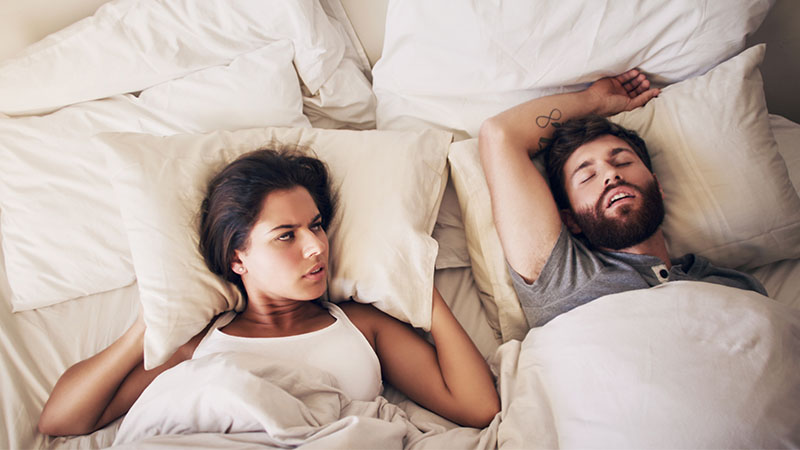Causes and Diagnoses
Causes and Diagnoses of Sleep Apnea
Sleep apnea causes interruptions in breathing during sleep, and is more likely in people who snore loudly, are overweight, have high blood pressure, or some nose or throat abnormality.
Sleep apnea also causes low levels of oxygen and high levels of carbon dioxide in the blood, and may be associated with irregular heartbeat, high blood pressure, heart attack and stroke or daytime sleepiness.
Your sleep medicine specialist* will need to know your symptoms, and whether they began when you gained weight or stopped exercising. If you can, ask a partner, roommate or relative if they have ever heard you snore loudly or make choking noises in your sleep.
You may also need to keep a sleep diary for two weeks. This includes information about what time you went to bed each night, when you woke up in the morning, and how many times you woke up each night. This will help the physician see your sleep patterns, which may contain clues about how to diagnose and correct your sleep problem.
A sleep medicine specialist will also try to determine if there is something else that is causing your sleep problems or making the symptoms worse, such as:
- Another sleep disorder
- A medical condition
- Medication use
- A mental health disorder
- Substance abuse
Diagnoses
A board-certified sleep medicine specialist can diagnose obstructive sleep apnea using an in-lab sleep study or a home sleep apnea test. This objective evaluation of your sleep may be needed before a diagnosis can be made. Options include:
- In-lab overnight sleep study: This sleep study requires you to stay overnight at a sleep center. You will sleep with sensors hooked up to various parts of your body to record your brain waves, heartbeat, breathing and movement. Specialists usually recommend a sleep study for more complex cases. An in-lab sleep study is the more expensive option, but it is covered by most health insurance plans. An overnight sleep study also gives your physician the most complete information about your sleep.
- Home sleep apnea test: Some patients with high risk factors for obstructive sleep apnea and no other medical disorders may be candidates for a home sleep apnea test. This sleep study lets you sleep in the comfort of your own home while a small monitor collects data as you sleep. The testing equipment is less complicated than what is used in an overnight sleep study. The sleep centers staff will show you how to hook up the testing equipment yourself. After your home sleep apnea test, you return your device to the sleep center.
Other apps and sleep tracking devices may claim to be able to detect sleep apnea, but their results can be unreliable. Be sure to discuss these devices with your sleep medicine specialist.
After your sleep study or home sleep apnea test, a follow-up appointment will be scheduled to discuss your results. If you are diagnosed with sleep apnea, your sleep medicine specialist will discuss treatment options with you.



